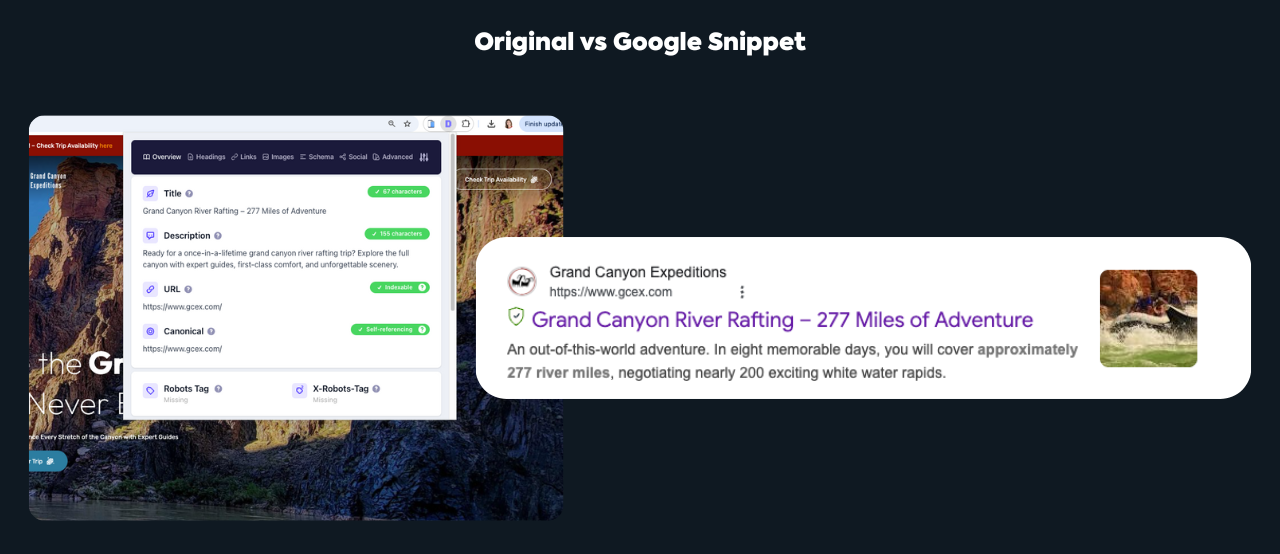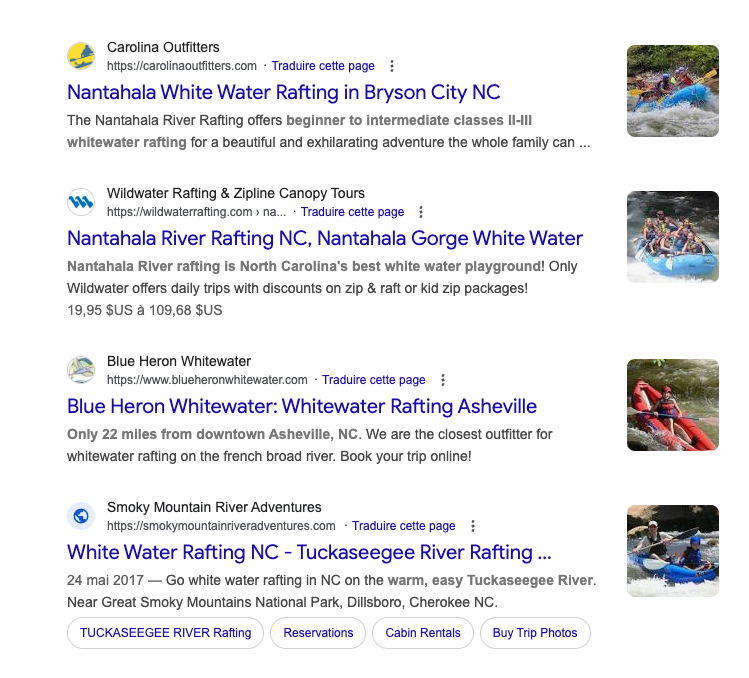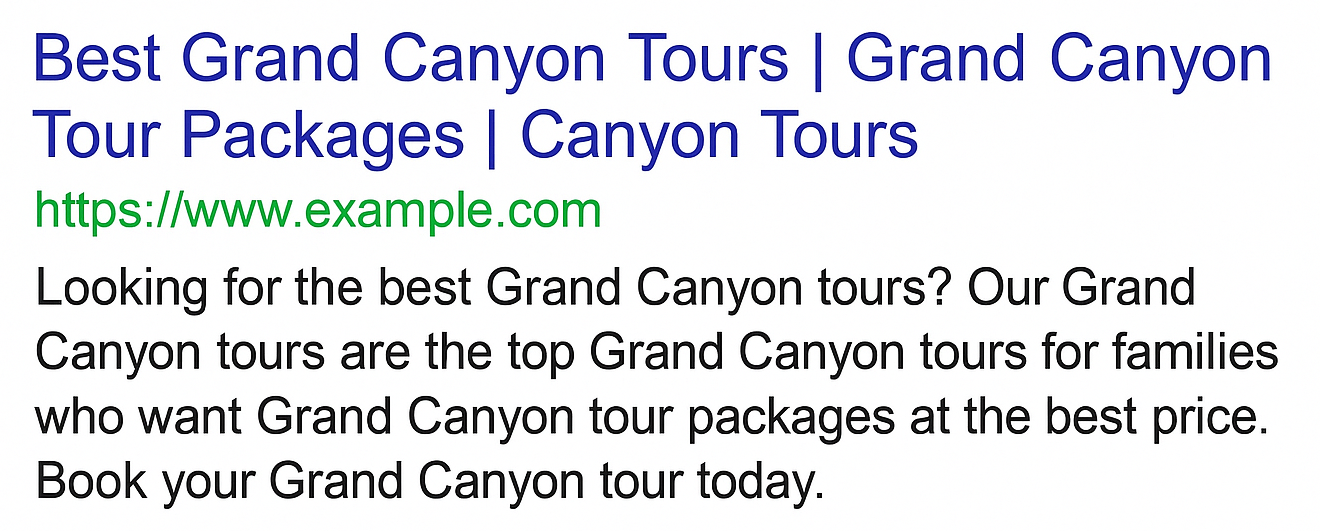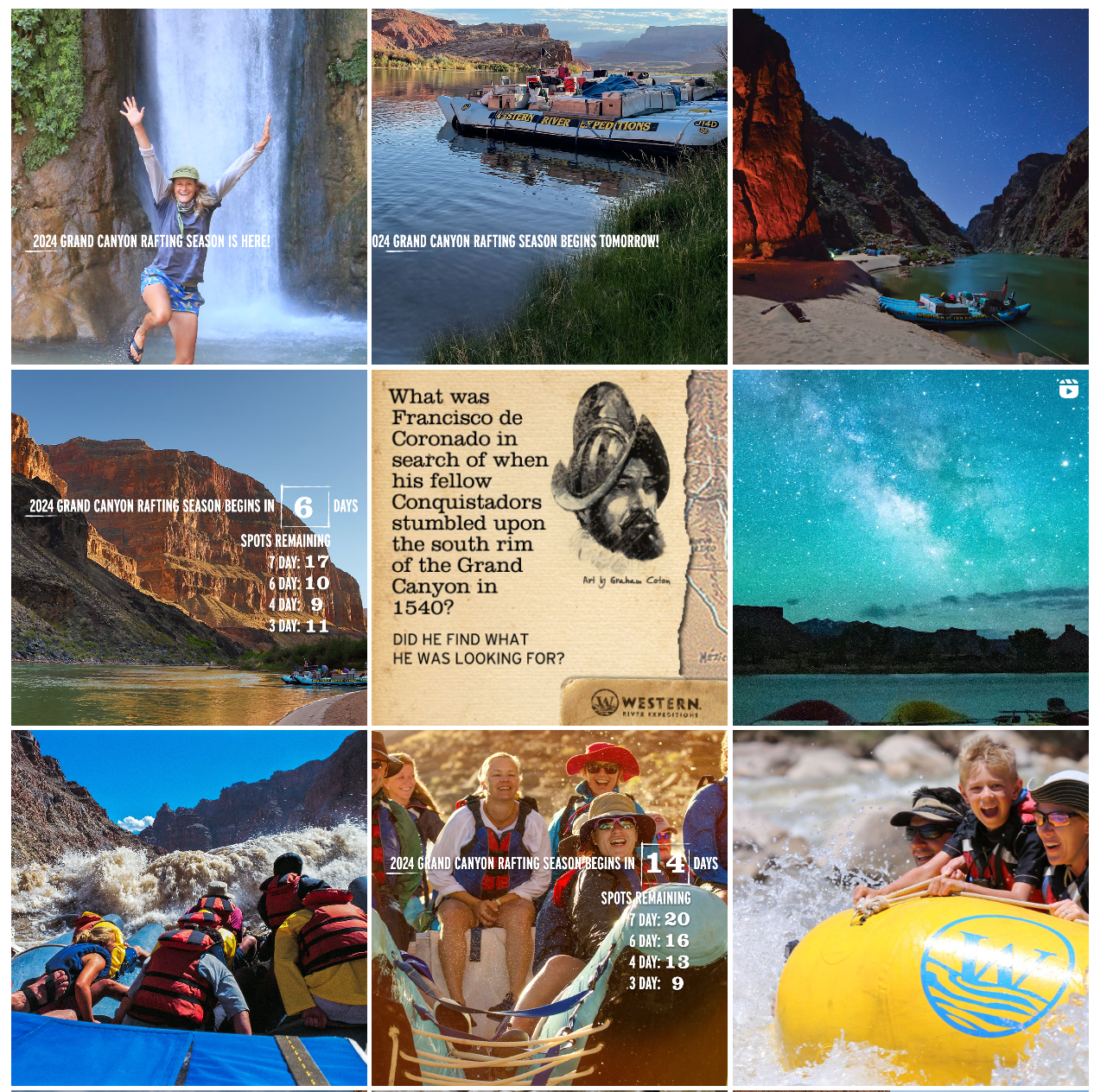Why Google Is Rewriting Meta Descriptions With AI (And What Tour Operators Should Do About It)
Google is changing how it builds search results, and it has a direct impact on how tour operators should handle meta descriptions. If you have noticed your carefully written meta descriptions showing up differently in search results, you are not imagining it.
Google is now using AI to rewrite descriptions based on search intent, page content, and what it believes will be most helpful to the user.
This shift does not make meta descriptions useless. It changes how we think about them and how tour operators should optimize their content going forward.

What Google Is Doing Right Now
“Google is no longer simply pulling a line from your page. It is using AI to generate entirely new descriptions based on the searcher’s keyword and intent. Your meta description is only one of many inputs now.” - Chris, ResmarkWeb SEO Specialist
Google is rewriting many meta descriptions with AI generated text. Some rewrites are minor. Others are completely rebuilt summaries tailored to the user’s intent.
Here is what we are seeing across tour operator websites.
1Google shows AI powered summaries at the top of search results
This is the screenshot that shows Google placing an AI generated summary at the top of the search results. Place it immediately under this subheading.
Meta descriptions are often replaced with AI generated text
Google is creating custom snippets that match each search query. These snippets are not simply pulled from your first paragraph. They are built from various parts of your content and may change from one search to another.

The AI generated snippet blends informational and transactional intent
Google is combining experience details, booking information, and helpful context into one summary. These snippets often feel like a mix of informational and commercial content.
Google still keeps descriptions within the normal character range
You will still see summaries between 120 and 160 characters. If Google needs more space, it will truncate the text.
Why Google Is Doing This
Google has rewritten meta descriptions for a long time, often as much as 60 percent of the time. What has changed is the level of intelligence used to create the new snippet. Instead of a simple rule based rewrite, Google uses AI to build a more accurate, intent aligned summary.
Google rewrites meta descriptions when the original version is:
- too generic
- not aligned with the keyword
- unhelpful
- not a good match to the page
- incomplete or missing
The quality of the snippet depends on the quality of your page.
Why This Matters For Tour Operators
Tour operators rely heavily on organic search visibility. When Google rewrites your meta description, it can help you or hurt you depending on your page content.
Here is how this change affects tour operators.
Your on page content matters more than your meta field
Google looks at:
- your headings
- your first paragraph
- your tour highlights
- your reviews
- your safety details
- your booking information
It uses all of this when creating the snippet.
Intent alignment is critical
Travel related queries usually follow predictable themes such as:
- best tours
- what to do in a specific location
- pricing and availability
- tour comparisons
If your content reflects these intents, Google generates a stronger snippet.
Better content produces better click through rates
When Google displays a clear summary with real value, users are more likely to click. Weak content leads to weak summaries and lower engagement.

Should Tour Operators Still Write Meta Descriptions
Yes. Meta descriptions still matter. The goal is different now. Instead of writing for click through rate alone, you are writing for clarity, intent alignment, and AI readability.
Google still uses your meta description when it:
- matches the searcher’s intent
- aligns with the keyword
- accurately reflects the page
- provides helpful information
The meta description is still important. It is simply not the only source Google uses.
How Tour Operators Should Write Meta Descriptions in 2025
Here is the updated approach that works with AI rewritten snippets.
Lead with intent
State what the page offers as clearly as possible.
Example:
"Explore Peekaboo Slot Canyon with a guided tour that includes local insights, small groups, and stunning photography spots."
Highlight the main selling point early
Google may only show the first 120 characters.
Match the page content
If your meta description does not match your page content, Google will override it.
Keep it simple and direct
AI prefers clarity and structure.
Avoid keyword stuffing
Forced keywords are a trigger for automatic rewrites.

How To Optimize Your Tour Pages For AI Generated Snippets
To give Google the best material to build a high quality snippet, focus on your page content.
Strengthen your first paragraph
This is often the first section Google scans.
Use clean, clear headings
Good structure helps Google understand your content.
Move important elements higher on the page
Your SEO specialist noted that users drop off quickly after the highlights section. Placing reviews and other trust elements higher increases visibility and improves AI summaries.
Add clear bullet point highlights
Google often pulls bullet points to create snippets.
Keep your content helpful and authoritative
EEAT is more important than ever. High quality, trustworthy content is rewarded.
Tour Operator Questions About Meta Descriptions and SEO
How often does Google rewrite meta descriptions for tour operators
Google rewrites meta descriptions very often, especially when the original version does not match the searcher’s intent. Tour pages with mixed informational and booking intent tend to get rewritten more frequently.
Does rewriting meta descriptions impact my Google rankings
No. Meta descriptions do not directly affect rankings, but they influence click through rates. A well aligned description helps users choose your tour listing over others.
Can I stop Google from rewriting my meta description
No. Google decides when to use your description or replace it with an AI generated snippet. The best way to influence it is to create clear, intent aligned content on the page.
Should tour operators worry about AI summaries replacing their original descriptions
No. The real opportunity is to create strong content so Google’s AI represents your tours accurately. Clear structure, strong headings, and helpful details improve how Google summarizes your page.
How can tour operators improve AI generated snippets
You can improve them by adding a clear first paragraph, descriptive tour highlights, structured headings, and updated content. Google pulls information from well formatted sections to create stronger results.
Ready to Stay Ahead of SEO Changes
Google rewriting meta descriptions is not a problem. It is an opportunity. Tour operators who focus on strong content, clear structure, and intent aligned messaging will see better search summaries and stronger performance. Meta descriptions still matter. They work best when they support your content and help Google understand the purpose of your page.
If you are curious about the latest SEO trends or you feel overwhelmed trying to keep up with constant updates, you do not have to manage it on your own. Our team stays on top of every change that affects tour operators and we can help you build a strategy that works in today’s search landscape.
Book a free discovery call to talk with someone on our team. We can walk through your current SEO, identify opportunities for improvement, and explore how we can support your growth.
Schedule your call below:


